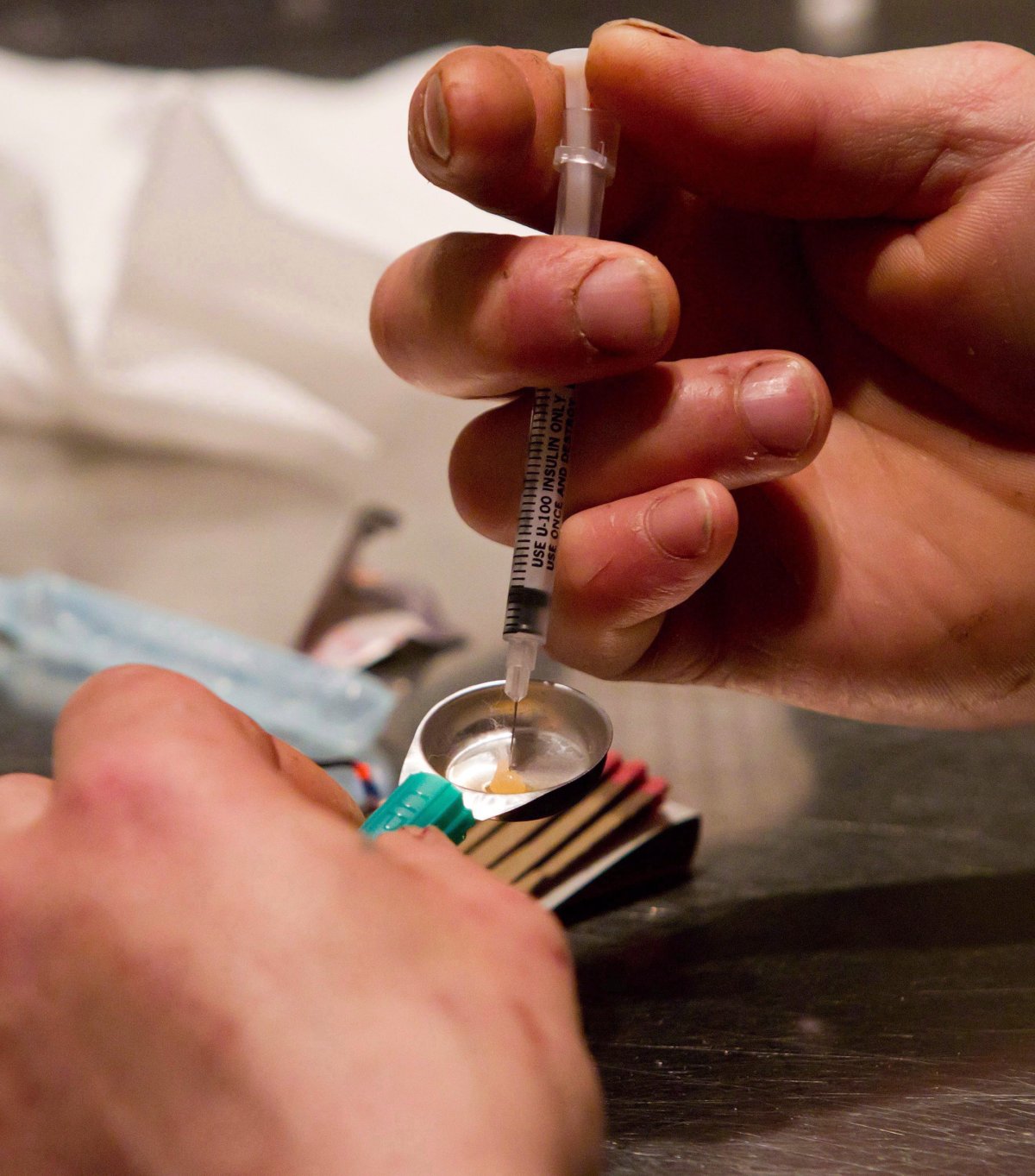Toronto’s board of health became Ontario’s first governing body to endorse supervised injection sites this week, but the momentum may stop there: The province isn’t interested.

“Supervised injection sites aren’t something that we’re moving forward with right now,” Health Minister Deb Matthews said in an emailed statement last week.
And if a slate of federal requirements goes through, lack of provincial backing would be enough to quash a proposal altogether.
It’s one more sign the 2011 Supreme Court victory for Insite, Canada’s only sanctioned supervised injection site, didn’t give rise to similar models across the country, as some thought it would.
Toronto’s board voted 6-2 Wednesday to ask the province to fund supervised injection sites as a pilot project, and express opposition to the federal government’s Bill C-65.
The idea behind a supervised injection site is to give hard-core addicts a safe, clean place to shoot up – reducing overdoses, infections and needle-sharing. Studies have shown Vancouver’s Insite has saved lives and reduced drug use in the neighbourhood.
Matthews’ view on supervised injection sites hasn’t changed since a 2012 report recommended them for Ottawa and Toronto. But Toronto’s Chief Medical Officer of Health David McKeown hopes to change her mind now.
“The minister did say they were open to looking at evidence and they’d take an evidence-based approach to health services,” he said. “I’m always hopeful the province will do the right thing.”
Matthews’ spokesperson Samantha Grant said in an email Thursday that the province is “focused on driving evidence-based decision making in our health care system. This applies to all harm reduction interventions, including safe injection sites,” she wrote. “We are always prepared to listen to good advice, and to that end, Minister Matthews is happy to meet with Dr. McKeown to discuss proposals from the Toronto Board of Health.”
The board of health wants Queen’s Park to fund the sites, integrated in existing health clinics. And the federal Tories’ Bill C-65 makes provincial approval an explicit requirement for anyone seeking the exemption to federal drug law you’d need to operate a supervised injection site.
The bill’s 26-odd requirements include providing evidence of a medical benefit as well as consulting with, and getting buy-in from, community groups, local government, police and medical licensing bodies. Health Minister Leona Aglukkaq has said the bill is necessary to protect public safety.
But injection site proponents say these expectations are so onerous as to be almost insurmountable: The law requires a plan to prevent diversion of drugs, even though any drugs in the facility would be illegal and brought in by users themselves. It requires 10-year criminal background checks for hypothetical employees.
“The hurdles are onerous and extensive, and looking at them from a practical point of view I think it would be extremely difficult for a health centre or hospital … to actually meet all those requirements,” McKeown said. “I think we have to look at a different approach.”
Aglukkaq has no plans to do that. “The criteria is consistent with the criteria laid out by the Supreme Court of Canada in their recent decision,” she said in an emailed statement Thursday, “and we believe it’s more than fair that community leaders, local law enforcement and residents have a say before someone establishes a supervised drug consumption site in their neighbourhood.”
McKeown plans on making his views clear when the bill goes to committee, likely this fall. But he admits that with a majority government, he may not make much headway.
The 2011 Supreme Court ruling dealt mainly with Vancouver’s Insite uniquely. But it did note that, in future exemption applications, the health minister should weigh public safety against public health. It’s possible any stymied injection site proponents could take their case to court on those grounds.
McKeown said Toronto Public Health hasn’t discussed taking the federal government to court, although he said “the Supreme Court has made it clear the federal government should give, in general, exemptions to these types of services.”
While Insite is Canada’s only sanctioned supervised injection site, and certainly its best known, it isn’t the only one: Vancouver’s Dr. Peter AIDS Foundation has operated an in-house supervised injection site for years without a federal exemption.
McKeown says this model, with supervised injection integrated with existing health services, is what he’s proposing for Toronto. But he said it “would be premature” to consider opening an unsanctioned site in Toronto.
In her statement last week, Matthews noted that these sites “are just one form of harm-reduction. Our government supports a wide-range of harm reduction strategies, including needle exchange, injection drug user outreach, and methadone treatment programs.”
She said the provincial Liberals have boosted spending on addiction programs by “nearly 50 per cent” in the past decade.
McKeown argues the same basic issue underscores the need for safe places to shoot up: People are dying or getting sick who shouldn’t be.
“We are having more morbidity and mortality associated with injection drug use than we need to have. Injection drug use is more dangerous than it needs to be,” he said.
“It’s not about my frustration. It’s the fact that injection drug users are experiencing poorer health as a result of these services not being available.”
Watch: New federal rules for supervised injection sites



Comments